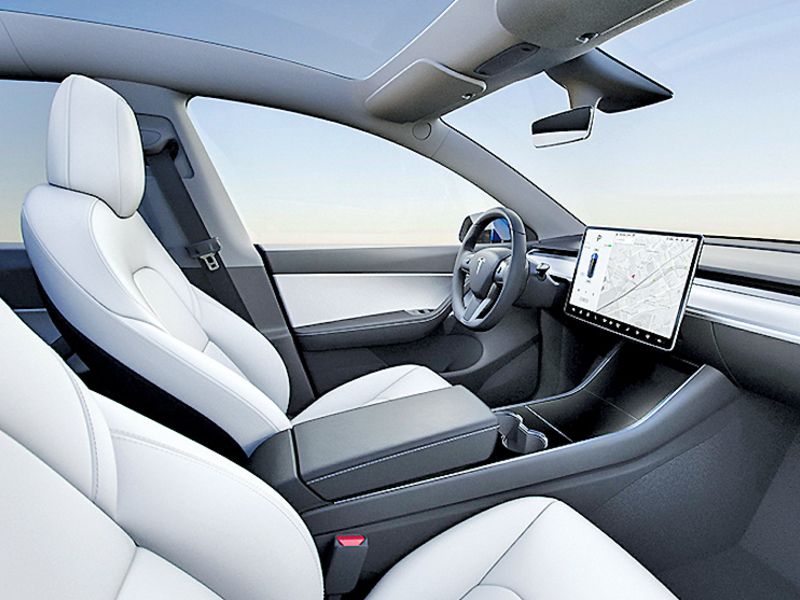
More than 5 out of every 8 electric vehicles registered in the U.S. this year through August were Tesla Model Y crossovers or Model 3 sedans, underscoring Tesla’s increased reliance on its less expensive models as it continues to dominate the EV market.
During that time, 105,445 Model Y crossovers were registered, accounting for about 36 percent of all EV registrations, according to data gathered by Experian. Meanwhile, 80,681 Model 3 sedans were registered, making up about 27 percent.
The nameplates were the top-selling EVs in the U.S. by far and also accounted for about 96 percent of all Teslas registered nationwide. Fewer Model S sedans and Model X crossovers were registered in the U.S. through August this year than through the same point in 2020. According to Experian, 6,212 Model S sedans were registered, down from 8,200 a year earlier. Meanwhile, 1,827 Model X crossovers were registered, a sharp decline from 11,302.
Jessica Caldwell, executive director of insights at Edmunds, said the dominance of the Model Y and Model 3 likely reflected a strategy on Tesla’s part to emphasize its lower-priced vehicles to maintain an edge in EV market share as more electric nameplates are introduced. Automakers plan to release more than 100 EVs in the coming years.
“Getting a foothold in the more mainstream EV market is probably going to do more for them long term to fight off some of these competitors from the other brands, to continue to have a big chunk of the EV market,” she said.
Even as more EVs have entered the market this year, Tesla has continued to hold a commanding grip.
Case in point: EV registrations through August more than doubled from a year earlier, from 137,176 vehicles to 294,218, making up about 2.7 percent of the new-vehicle market. The Model Y alone accounted for more than half of that growth.
Tesla also continued to make inroads in its quest to dominate the luxury market. Only three luxury brands — BMW, Lexus and Mercedes-Benz — had more of their vehicles registered in the U.S. through August than Tesla.
And the EV maker appeared poised to soon overtake Mercedes for the No. 3 spot. Through August, 194,165 Tesla vehicles were registered in the U.S., just 4,538 fewer than the number of Mercedes-Benz registrations.
At the same point last year, Tesla trailed Mercedes by more than 58,000 vehicles — and also found itself just behind Audi in the luxury ranks. Through eight months this year, Audi trailed Tesla by 34,722 registrations.
Registration data provides the most accurate view into Tesla’s U.S. sales and market share because the automaker reports quarterly sales on a global basis only.
The Chevrolet Bolt EV was the top non-Tesla electric vehicle by year-to-date registrations, with 22,799 through the first eight months of 2021. The Ford Mustang Mach-E and Volkswagen ID4 crossovers — two new entrants to the market — rounded out the top five, with 15,938 registrations for the Mach-E and 10,685 for the ID4.
While the Ford and VW brands may lack Tesla’s panache, they produced strong products that “look good” and will help them stand out in an increasingly crowded market, Caldwell said.
“Vehicles like that, that kind of hit the core of the market with small SUVs, are going to see more success because you’re going to have to meet people where they’re at,” she said. “If you produce a good-looking EV with good range and in a segment that most people want to buy, I think you’re going to see a lot of success.”

